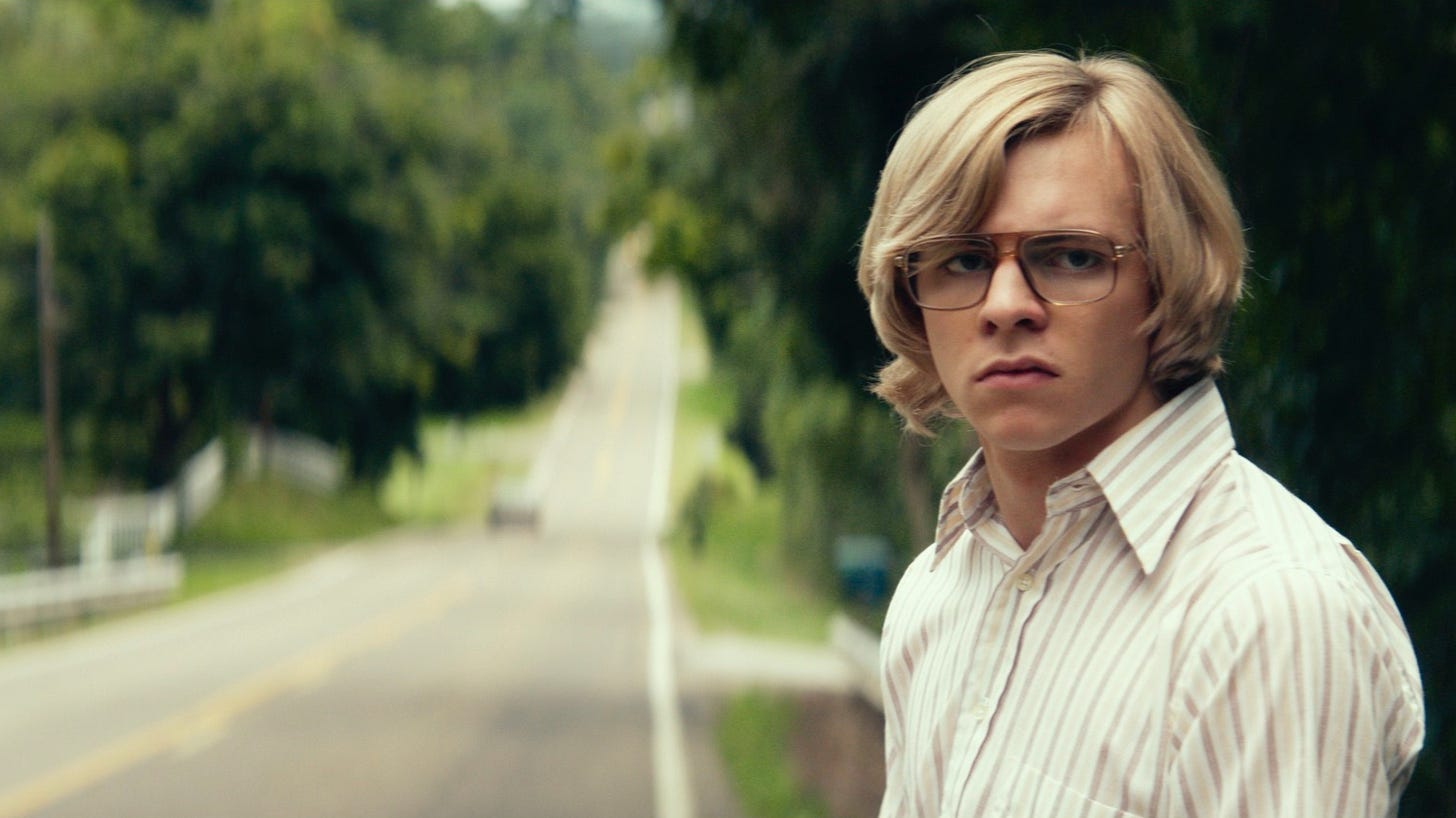'My Friend Dahmer' Film Explores The Limits Of Empathy For Evil People
Eric Shorey defends the 2017 film from attacks that accuse director Marc Meyers of "glamorizing" the infamous murderer.
When the trailer for Marc Meyers' My Friend Dahmer dropped months ago, reaction was certainly mixed. Some praised the film's obvious seriousness and sensitivity to an issue often sensationalized, while others criticized the ongoing trend of the romanticization of serial killers. Teen Vogue editor Sandra Song came down harshly against the film: “We are continually fed this idea that white male serial killers are charming, debonair characters — that they're just misunderstood, incomprehensibly complex people who also happen to have a strange proclivity for the dark and macabre,” Song writes. “And while there's nothing wrong with being curious about what drove them to commit acts of this nature, that curiosity becomes an issue when movie or TV producers opt to completely gloss over the lives of the victims in favor of an easily digestible 'outsider' narrative.”
Fair enough, but that criticism hardly applies to My Friend Dahmer, as would be evident to anyone who explored the dark depths of Derf Backderf's graphic novel of the same name, on which the movie is based. Dahmer is not a charming and hopeless romantic with morbid fascinations: he's mostly pretty pathetic in both the film and the novel. Dahmer is not glamorous; he's both reprehensible and pitiful: he laughs at others' pain and relishes in investigating internal organs — but he also is abandoned by his family and left alone to sob, uncontrollably, on the floor of his empty home. He drinks abundantly, he cruelly mocks the disabled, even his closest friends only keep him around as a curiosity. He is not debonair at all; he's mostly just very sad.
Backderf specifically had a unique insight into Dahmer because the two were friends in real life (the book, despite its wild premise, is non-fiction), giving his graphic novel, which is peppered with his notes and recollections, an idiosyncratic vantage point the film obviously lacks. Backderf repeatedly makes clear that he in no way excuses the crimes Dahmer would go on to commit and uses the story of the lonely gay teen as a way for us to ask questions, not as an exculpation: Do evil people deserve pity? What made them evil to begin with? Could Dahmer have been saved? Why didn't anyone see what was going on — before it was too late?
The inconvenient point of fact that Teen Vogue almost willfully misses is that despite acting monstrously, serial killers are human. They have parents. They sometimes even have friends. People along the way may have tried to save them — and those people seemed to have failed. Because of their human-ness, because of the extreme nature of the acts they will go on to commit, they are of interest to many. Not every investigation into the serial killer's psyche is totally prurient or even particularly insidious. Indeed, My Friend Dahmer depicts almost no acts of actual violence. The film ends as Dahmer picks up his first victim, a nubile hitchhiker — but the credits roll before any blood is shed. This clearly means that the focus is, as Song suggests, not on the lives of the victims. But that would be a different story, entirely.
It's easy to have jumped to certain conclusions when it comes to My Friend Dahmer, especially considering the stunt casting of the young Disney star Ross Lynch. What becomes obvious from actually watching the film is Lynch's incredible talent. His understated and measured performance (with the exception of his over-exaggerated hunched walk) is clearly thoughtful, buttressed by excellent work from Anne Heche (who plays Dahmer's mother) and Alex Wolff (who plays Backderf). The film is largely a faithful adaptation of the book, with a few confusing creative liberties taken: the jogger that Dahmer stalks is — in the film — also Dahmer's pediatrician, for some reason. And the penultimate scene intimates that Dahmer considered killing Backderf — this seems to be a total fabrication. Otherwise, the implicit morality of each project is largely similar (which begs a bigger question: why bother adapting the book at all if so little about the text was actually changed?), although the grotesque nature of the comic's artwork is somewhat lost in the generically attractive appearances of much of the cast.
“It's my belief that Dahmer didn't have to wind up a monster, that all those people didn't have to die horribly, if only the adults in his life hadn't been so inexplicably, unforgivably, incomprehensibly clueless and/or indifferent. Once Dahmer kills, however – and I can't stress this enough – my sympathy for him ends,” writes Backderf in the intro of his novel. And what's romanticizing about that thesis, exactly? If we relinquish Dahmer and his ilk to a world in which no empathy can be extended, haven't we also lost our humanity?





